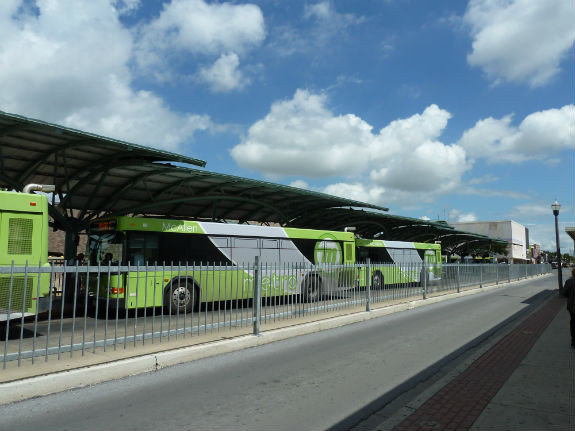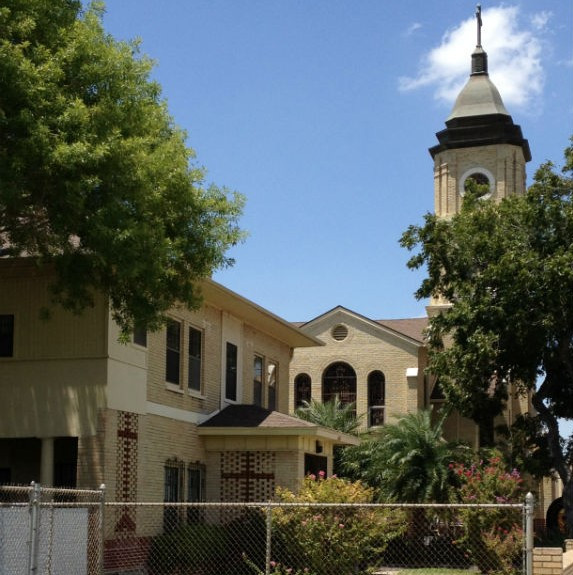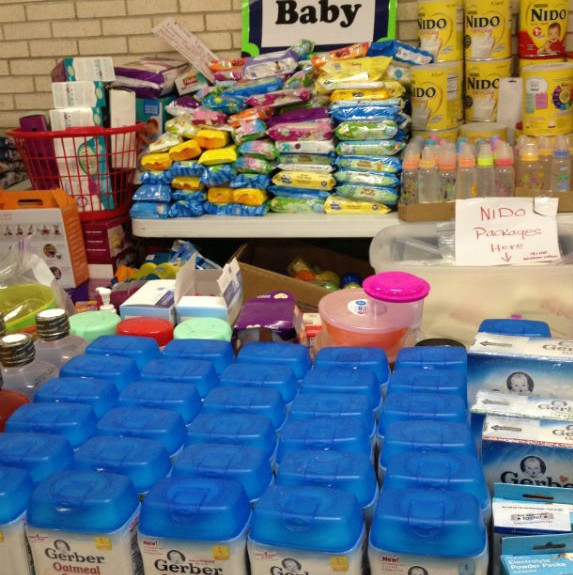A Thin Line
Our response to those at our borders who are hurting

It’s a hot day in Texas, expected to hit 100 degrees. After four hours driving to McAllen in the sun, with the air conditioning on full blast, I arrive exhausted, wanting to take a shower and lie down (in a hotel room also with air conditioning). And so I do, thanking God for that privilege and blessing.
I can’t help but think that if I feel this way from the comfort of my car and hotel room, how could anyone make it with no water and no shelter from this sun—the women and children who are traveling here to Texas from Central America in such large numbers?
Most arrive in the same clothes they have worn for the last week or two. Some have had to skirt the remains of others who did not make it. Many were in constant danger from predators along the way.
It takes desperation for a mother to take such a trip, let alone to send her children unaccompanied on a journey of thousands of miles, at the mercy of strangers to whom she gave her life savings, to cross a thin line called “The Border With the USA.” Only desperation would lead her to take those chances for the possibility of a better life.
Another Ellis Island
Although the recent wave of immigrant children appears to be slowing, the number trying to cross illegally in 2014 could reach as high as 90,000—more than three times that of 2013, according to the Department of Homeland Security.
Why so high now? Many told authorities that “they learned from the media in their home countries that if they crossed the border to the U.S. right now, they’d be given papers and allowed to stay,” reports Foxnews.com. “Veteran Border Patrol agents know that with their attention diverted to women and children, the border at times … appeared virtually unprotected from dangerous drug and weapons traffickers.”
This border has seen many other such waves. Historically, Texas was the refuge whenever Latin American countries experienced political, economic or religious revolutions. While European immigrants crossed an ocean to sail into New York’s harbor for refuge, many of today’s arrivals cross an ocean of sand, cactus and snakes.
James 1:27 says, “Religion that God our Father accepts as pure and faultless is this: to look after orphans and widows in their distress and to keep oneself from being polluted by the world.”
This is not a matter of politics. This is a matter of obeying Scripture and offering humanitarian help—demonstrating to children and their families that there is good in this world; offering a warm hug and a comforting word while God Almighty works on their immediate and future destiny.
Good in this world
More than a few organizations are helping these souls with water and clothing. Immigrant Hope wants to do the same, and more: offer the bread and water that leads to life now, as well as the living bread and living water that leads to eternal life. This is compassion with a gospel purpose, and it’s what inspired me to join the Immigrant Hope board. It’s also what led me to drive the four hours to McAllen to see firsthand—with both my eyes and my heart—what’s happening on this side of that thin line.
After these immigrants are apprehended at the Texas-Mexico border (or turn themselves in to U.S. Border Patrol agents), they are interviewed, assigned a court date and then given documentation that enables them to temporarily be united with their families on U.S. soil.

At this point they are dropped at the McAllen Central Bus Station, to await transportation to their chosen city. The wait might be a few hours, or it might last all night. And this is where nearby Sacred Heart Catholic Church steps in—welcoming those weary travelers and caring for their needs for the few hours they are on the church’s doorstep.
Sister Norma has been running a community center at the church since 2003, with a mission to work for peace and justice. As the immigrants wait for their buses, they are invited to visit the center, with the city offering a trolley as free transportation.
There, in conjunction with Catholic Charities, these overwhelmed mothers and children are received with warm rounds of applause. Each individual is assigned to a volunteer who will review the process, answer questions, and help them select newer, clean clothes and shoes, plus snacks—something for every age. They are also able to take a shower while they wait.
EFCA on the border
Catholic Charities coordinates with other groups and individuals as well: The Salvation Army provides a warm meal; Save the Children staffs a corner for children, complete with toys; an anonymous individual has donated a portable medical unit; the local food bank stores donations intended for distribution; and Hildago County provides air-conditioned tents if overnight stays are needed.

McAllen is just one of the border cities to experience this crisis, but it happens to be around the corner from an EFCA church. Living Word EFC in nearby Pharr, Texas, has offered to house overflow from Sacred Heart Church and has volunteered to host EFCA relief teams. “We can’t sit on the front row of this crisis and do nothing,” says Pastor Ruben Martinez. “What kind of religion is that?”
While the immigrants are breaking the law, which Ruben acknowledges, the church’s mission is not the same as that of the Border Patrol.
Living Word has other goals as well. Four members are planning to attend an upcoming IMMIGRANT PATHWAY Institute training—a way to become better equipped to offer government-sanctioned legal advice to immigrants, coupled with a gospel message that’s heavenly sanctioned.
This is what Jesus was talking about when He said, “I was hungry and you gave Me food; I was thirsty and you gave Me drink; I was a stranger and you took Me in; I was naked and you clothed Me; I was sick and you visited Me; I was in prison and you came to Me” (Matthew 25:24-25).
This border crisis is not a problem. It is a test. The watcher of all souls is sorting and sifting. Do we have a religion that looks after orphans and widows in their distress? We must not break the law or deny that these individuals are breaking the law, but neither can we deny that they are of our flesh and made in the image of God. The Border Patrol must do their job, and we must do ours.
Contact Living Word EFC by email or phone (956-686-0017) to learn more about the church’s immigrant-crisis response and how you can help.
Send a Response
Share your thoughts with the author.